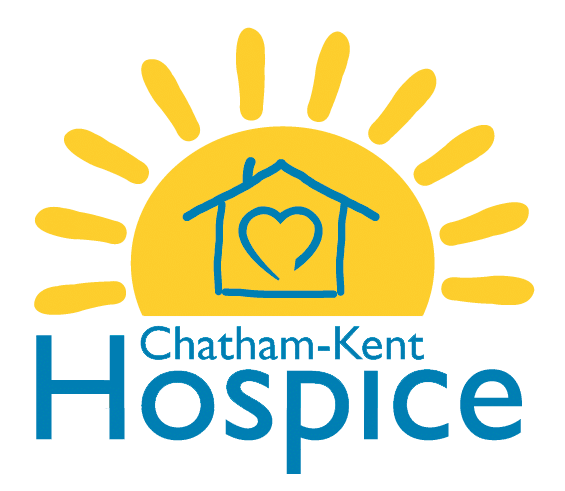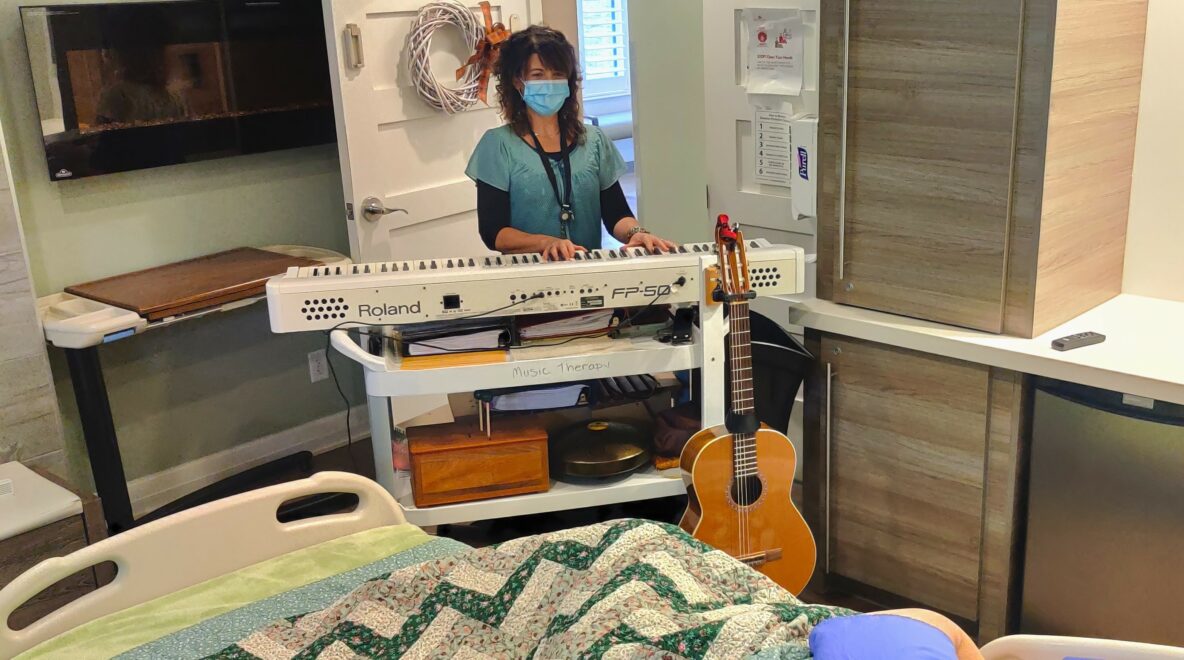When people hear the words Music Therapy, they don’t always associate it with having a role in hospice care. However, Music Therapy can affect multiple changes in the mind, body and spirit of a person, and can be an effective approach to supporting palliative care patients.
At end-of-life, each person’s needs and wishes are radically different. Music offered by a trained Music Therapist has wide reaching and flexible capabilities. Even those people who do not generally enjoy listening to music can find that live music, when played by a Music Therapist, at a soft volume, the right speed and correct pitch, can slow down racing thoughts, relax the muscles, intercept pain messages from the brain and slow the blood pressure to decrease physical pain and improve breathing. We saw this with one resident who benefited from Music Therapy, specifically the use of a harp, for treatment of PTSD symptoms. The resident experienced decreased blood pressure, decreased heart rate, feelings of inner peace and physical relaxation.
For those who enjoy music, there are a variety of experiences for bringing peaceful thoughts, wonderful memories, relaxation, joy, meaning and purpose back to life. Some of these experiences include: playing instruments or singing with the therapist, praying or chanting with music, listening to familiar songs and discussing the lyrics or memories, moving to music, making up short pieces and even drawing to music. Each resident and their loved ones can choose the experience that is most meaningful to them. In one case, our Music Therapist was able to use the indigenous flute with a resident who suffered extreme physical, emotional, and spiritual pain. Pairing the flute playing with guided imagery, these sessions provided the resident with a heightened sense of spiritual health, emotional stability, and complete relief from physical pain during the session and for short periods afterwards.
Another aspect of Music Therapy that we offer is a Legacy Project. Working with the resident’s abilities and wishes, the result of the project has a unique meaning for each resident and their family. Some examples of legacy project elements include: recordings of messages from residents, playlists of songs that are special for the resident and provide comfort for their loved ones, recording the heartbeat of the resident to give to family, creating original songs with the Music Therapist with the resident writing the lyrics and choosing the sound of the music.
At Hospice, we have witnessed Music Therapy heal past wounds, create memories, and build bridges in relationships for the future. Music Therapy really does offer something for everyone!

